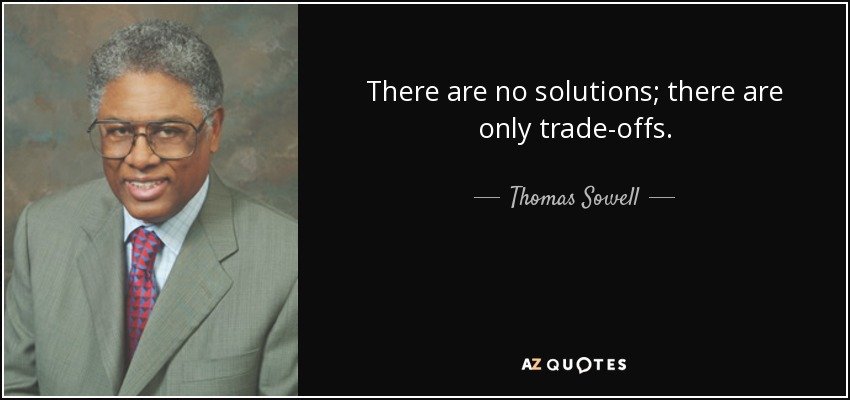A Spiritual Autobiography—Miles Kimball
Miles Kimball as a young man
I am a Unitarian-Universalist lay preacher. I gave 12 sermons—annually from 2005 to 2016—to the Community Unitarian Universalists in Brighton. This post is my April 3, 2011 sermon “A Spiritual Autobiography.” This brings to 11 those that are posted on this blog. The others are:
Sharing Epiphanies (including the video)
The Message of Mormonism for Atheists Who Want to Stay Atheists (video here)
Below is the newly edited text. This sermon only gives my spiritual journey from my birth in 1960 to 2011.
At the bottom of this post are links to some of my other posts on religion. I began blogging in 2012; a large part of my spiritual journey since I gave this sermon is laid out here on my blog.
In line with the democratic spirit of Unitarian-Universalism, I believe that it would be a good thing for Unitarian-Universalist congregations to increase the number of opportunities, and the encouragement, for members of the congregation to speak to the congregation. In addition to giving everyone a chance to hear many viewpoints, this has the benefit of allowing everyone to get to know each other better.
One problem with this idea of rotating speaking opportunities and assignments among congregation members is that many people are terrified of public speaking. So it is important to develop patterns for talks that are both reasonably interesting and easy to prepare and give. One example of an easy form of talk to give is the “spiritual autobiography”: a more or less chronological account of one’s religious quest that draws a few morals along the way. At least, as long as one’s memory is reasonably intact, a spiritual autobiography does not require a lot of outside research! And so many Unitarian-Universalists are refugees from some other religious tradition, or have faced deep soul-searching within this religious tradition, that there are many fascinating stories to be told.
In giving an account of my own spiritual journey, there are at least four thematic threads to follow along the way: us versus them, mystical experience, the spiritual affects of ambition, and the quest for hidden wisdom.
I grew up in Madison, Wisconsin, far from the center of the Mormon Church to which my family belonged. When I was young, I had only a dim awareness of any religious difference between my family and others in Madison—partly because, outside of church, people didn’t talk about religion very much. I remember being surprised when listening to “Jesus Christ Superstar” at my friend’s house to learn that, as a Jew, he didn’t believe in Jesus Christ as the Son of God. It simply hadn’t occurred to me that not everyone believed that.
One practical religious difference was that, as Mormons, we had more meetings than most other religions. I remember being embarrassed to explain to my friends about a weekday children’s meeting, not because it was religious, but because I felt I was almost too old to be going to that meeting.
I would not make it very far on American Idol, but I was not very old when my mother got me to sing a solo in Church. The song was called “A Mormon Boy,” and it had the refrain “I might be envied by a King, for I am a Mormon boy.” Of course there was no reason for any king to envy a Mormon boy, since Mormons would welcome any king who wanted to convert to Mormonism. When I look back, the interesting thing about that song is the sense of social inferiority it hints at. Mormonism is considered a weird, fringe religion that most Americans look down on, however much they may like individual Mormons. The awareness, at some level, that others look down on Mormons causes Mormons to have an inferiority complex they are not fully aware of, and to be very proud of those Mormons who are successful in the world at large, especially celebrities. If you don’t believe me, you only have to Google the website famousmormons.net, which scratches this itch.
When I was eight years old, my father, who like almost all Mormon men, had been ordained a Priest and Elder of the Mormon Church, baptized me by dunking me totally under the water off of Picnic Point, a thin peninsula in Madison’s Lake Mendota. Since that was my chance to get my sins washed away, I felt I could safely steal some cheese from our refrigerator before that, but not after. After I was baptized, my father laid his hands on my head along with several other men to confirm me a member of the Mormon Church and give me the Gift of the Holy Ghost. In Mormonism, all members of the Church can get personal messages from God through the Holy Ghost. Also, in the Mormon scriptures, it talks of one reward of righteousness as having the Holy Ghost as a constant companion. So I was brought up to believe, and did believe, that I had the moral equivalent of a personal genie following me around to answer my questions and give me guidance. Indeed, Mormon scriptures explain in some detail how to do this. With God speaking, they say “… you must study it out in your mind; then you must ask me if it be right, and if it is right I will cause that your bosom shall burn within you; therefore, you shall feel that it is right. But if it be not right you shall have no such feelings, but you shall have a stupor of thought that shall cause you to forget the thing which is wrong …” In other words, as I understood it, if I prayed and asked God a question, all I had to do was to keep talking about different aspects of the question and asking the question in different ways until I either felt a warm sensation in my heart—which meant YES or felt a little stupid and confused, which meant NO. Or if there were two possible courses of action I was thinking about, I could talk about each alternative in my prayer and notice which one left me feeling warm and good and which one left me feeling confused and not-so-good.
A great deal of the first 40 years of my spiritual autobiography was determined by the fact that this procedure for asking God questions seemed to work very well for me. Mormon teenagers are very strongly encouraged to “get a testimony,” which means to have a spiritual experience that confirms that Mormonism is the one true religion. For me, getting a testimony was a straightforward matter of reading the Book of Mormon and following its advice to pray and ask God if it was true. Precisely as predicted, I felt a burning in my heart on cue. I interpreted that spiritual experience as telling me that the Book of Mormon and Mormonism in general were both true. Not only that, I could essentially reproduce that experience if I prayed and asked the question again. I didn’t just grow up in Mormonism. I believed it, through and through, because of my own spiritual experiences, of this type.
When I was thirteen, my family moved from Madison Wisconsin to Provo, Utah. Just a few months after we moved to Utah, my grandfather became the head of the Mormon Church—analogous to the Pope, except that there a lot fewer Mormons than there are Catholics. My grandfather became President of the Mormon Church by being appointed as one of the twelve apostles of the Mormon Church at a reasonably young age and then living a long time so that he became the most senior apostle. He had been appointed as an apostle when he was working as an unpaid local church leader while making a living selling insurance and real estate in southern Arizona. As President of the Mormon Church, often called “The Prophet,” millions of people would listen with rapt attention to his speeches at church conferences that occurred twice a year, looking up to him as God’s representative on the Earth. Without my fully realizing it, watching all of this happen to my grandfather nurtured an outsized ambition in my heart. Since my grandfather had been, I thought, chosen by God out of relative obscurity to be an apostle, I imagined God having some great task for me to do someday, and resolved to be prepared. Since any great religious task would have to wait on God’s appointment, I needed to do something else in the meantime and decided to be some sort of scientist like great uncle Henry Eyring, who was a world-renowned chemist and had an equation named after him, though he didn’t quite win a Nobel Prize.
During my thirties, this outsized ambition caused me a lot of psychological pain, and a fair amount of anger, when my relatively successful career as an economist was not as successful as I thought it should be. As a result, I returned to psychotherapy, and have been in psychotherapy most of the time ever since. (An earlier stint of psychotherapy had been occasioned by the death of one of our baby girls.) I think of psychotherapy as its own kind of religion and an important step on my religious quest. More particularly, I think of helping people to get the right amount of ambition as a key service that religion should provide. Too little ambition, and you don’t reach your potential. Too much ambition, and you are in great danger of either cutting ethical corners, ignoring your family and friends, or making yourself miserable. I don’t claim to be cured of my outsized ambition, but I am no longer in such great psychological pain on that front.
I encountered at least two other quasi-religions in my thirties. My sister got me into Transcendental Meditation, which I still try to find time to do at least once every day. As a form of meditation, the great virtue of Transcendental Meditation is that it is easy—much easier, for example, than the Buddhist Insight Meditation that I later took a class in. The way I do it, all I need to do is to sit in a chair for twenty minutes and say a mantra—or not—as my mind wanders. I think of it as some combination of cleaning out the closets of my mind and just plain resting.
The other quasi-religion was the courses of the Landmark Educational Corporation. My friend Kim Leavitt got me into those. The Landmark Educational Corporation has a set of personal growth workshops that use Existentialist philosophy and Deconstruction in a pragmatic way to teach how to let go of grudges, repair relationships, and envision and work toward a positive future for one’s life and for the world. I found those workshops quite powerful and valuable and persuaded many friends to do them as well. Most of them had a good experience. The Landmark courses I took have helped me to have a can-do attitude in my life, and gave me great models of how to be a good teacher and to be persuasive. But I have found most valuable the philosophy they taught about life as something that has the meaning we decide to give to it.
[We tried to get a video of this sermon, but only got the last third, from about here on. See immediately below.]
My last thematic thread is hidden wisdom. Let me backtrack some. For a young boy, Mormonism has a lot of cool ideas in it that sound like Science Fiction: other worlds, God living in the Kolob solar system, and God creating the world by scientific means. It is not an accident that Utah is a Mecca for Science Fiction. I had the sense growing up that there were endless things to be learned and discovered in Mormonism. As a teenager, I was fascinated by the work of Hugh Nibley, who managed to read Mormonism into ancient documents, including Egyptian papyri. That was heady stuff. I later dated Hugh Nibley’s daughter Martha Nibley briefly but intensely before she went on to marry my friend John Beck, write several best-sellers and write a column in Oprah’s magazine, among many other adventures she has chronicled. She has the same kind of free-wheeling intellectual creativity that her father had. (Here is her Amazon page.)
When I arrived at college, I realized that my classmates knew so little about Mormonism that Mormonism to them was whatever I told them it was. So without stretching things too much, I tried hard to make my account of Mormonism as attractive and as consistent with scientific and historical facts as I could. Later on, in my thirties, every other week I got together with a group of Mormon men who were, by and large, quite skeptical of Mormonism. At first, I imagined myself to be a missionary to these skeptics, and continued my efforts to give an attractive account of Mormonism consistent with scientific and historical facts. Over time, we exhaustively discussed the relationship of Mormonism to every relevant scientific and historical fact we could think of. In order to continue to make sense of Mormonism, I had to gradually modify my idea of Mormonism, but I was still able to believe. During this same time, I was happily teaching an adult Sunday School class in the Mormon Church as well as periodically teaching some of the adult men in what was called a “Priesthood Meeting.” The modified version of Mormonism I had come up with crept into this teaching, but even more, I delighted in letting those who came to my Sunday School class talk freely about what they thought and their concerns, including Mormonism’s unequal treatment of women. By the time I was almost forty, local Mormon leaders had stopped me from teaching Sunday school and finally stopped me from teaching in “Priesthood Meeting” as well. To put it bluntly, I felt I could defend Mormonism in the face of scientific and historical and social issues, but by the time I had modified Mormonism enough to feel good about defending it, many other Mormons didn’t recognize it as Mormonism anymore.
One of the luckiest things in my life is that while very different in its details, my wife Gail’s religious journey and my religious journeys were synchronized well enough that we left Mormonism together in 2000. At that time I began my association with Unitarian Universalism. It is nice to be able to be myself and say what I think without any fear in Unitarian Universalism.
Psychologically, leaving Mormonism was quite wrenching. I had to rethink a lot of things. For one thing, without any need to try to make sense of Mormonism any more, I decided in fairly short order that I didn’t believe in God. That made it hard to believe in an afterlife either, which was a real blow. Like most Americans, I had assumed I would go to heaven, so nothingness after death was a great come-down. I grieved the afterlife I now believed I would never have.
After the difficult adjustments of leaving Mormonism, my spiritual life has revolved around my men’s circle in the First Unitarian-Universalist Congregation of Ann Arbor, my annual visits to the Community Unitarian Universalists of Brighton, my study of happiness as an economist, my psychotherapy, and continuing to wrestle with the reality of death.
Besides the double-edged sword of ambition, and the irrational sense I still have of a personal genie watching out for me, two big legacies of my experience in Mormonism are the desire for hidden wisdom and the love of talking about religion. At this point, I don’t think I know what religion is all about. Most of the time these days I think of religion as a grab-bag of many different things, some incredibly valuable and some utterly worthless or even harmful. But if we can sort through the items in the grab-bag carefully enough, we can keep the good and throw away the bad. I believe that if talk to one another about our views on each item in the grab-bag, we can do a better job of sorting than if we try to do our sorting alone. Each person’s spiritual autobiography can give us extra insight in that task. Thank you for giving me this chance to share mine.
Don't miss these posts on Mormonism:
The Message of Mormonism for Atheists Who Want to Stay Atheists
How Conservative Mormon America Avoided the Fate of Conservative White America
The Mormon Church Decides to Treat Gay Marriage as Rebellion on a Par with Polygamy
David Holland on the Mormon Church During the February 3, 2008–January 2, 2018 Monson Administration
Other Posts on Religion:
Posts on Positive Mental Health and Maintaining One’s Moral Compass:
Co-Active Coaching as a Tool for Maximizing Utility—Getting Where You Want in Life
How Economists Can Enhance Their Scientific Creativity, Engagement and Impact
Judson Brewer, Elizabeth Bernstein and Mitchell Kaplan on Finding Inner Calm
Recognizing Opportunity: The Case of the Golden Raspberries—Taryn Laakso
Taryn Laakso: Battery Charge Trending to 0% — Time to Recharge
Savannah Taylor: Lessons of the Labyrinth and Tapping Into Your Inner Wisdom




















